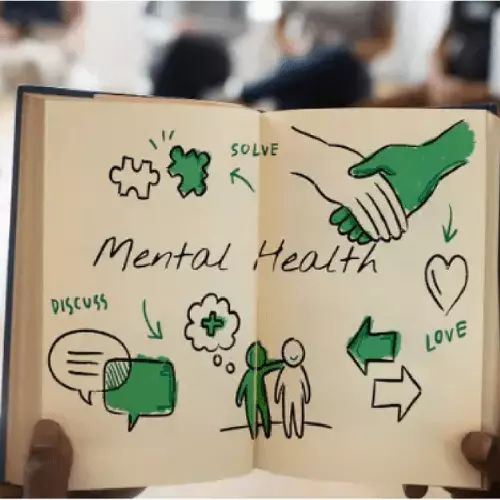As the New Year begins, it’s important to remember to invest in our own mental wellbeing.
As a society, we’ve become much more cognizant of substance use and mental health challenges since the beginning of the pandemic. Still, the Substance Abuse and Mental Health Services Administration’s National Survey on Drug Use and Health, released in November, illustrated how much work we have to do. The survey said that in 2022:
- 59.3 million people aged 18 and older had a mental illness (versus 57.8 million in 2021).
- 4.8 million adolescents aged 12 to 17 had a major depressive episode (versus 5 million in 2021).
- 70.3 million people used illicit drugs (versus 61.2 million in 2021).
- 48.7 million people aged 12 or older had a substance use disorder (versus 46.3 million in 2021).
It’s no wonder that a recent poll from the National Alliance on Mental Illness found that 86% of Americans want Congress to do more to improve mental health care.
Mental wellbeing is a personal journey as well as a societal goal. As we work toward greater access, here are a few strategies we can use daily to promote our own mental wellbeing in the New Year.
Recognize that it’s OK not to feel OK. Acknowledge your feelings. Allow yourself to feel sad. Acknowledge the absence of normalcy — isolation, disrupted routines and perhaps the loss of a job or a loved one. Grieve if you need to.
Prioritize your physical health. Engage in physical activity, get plenty of sleep and eat nutritious foods. Overindulgence can add to stress and guilt and can affect your overall health and wellbeing.
Say “no” sometimes. Don’t overschedule yourself. Not setting boundaries can leave you feeling resentful and overwhelmed. Try to manage stress before it manages you and take time for yourself. Spending just 15 minutes alone, without distractions, may refresh you enough to handle what’s on your plate.
Despite our best efforts, any of us can reach our tipping point. If you feel yourself experiencing sadness or anxiety for an extended period, ask for professional help. Talk to your primary care physician or a mental health professional for additional information and support.
Recognize that others may need – and benefit from – your support. Check in with those close to you and offer help by providing information and resources if you notice someone struggling. Give reassurance by listening nonjudgmentally and empathizing with their experiences.
We’ve made meaningful progress since the beginning of the pandemic, and as a result, more people understand the value of caring for their mental wellbeing and are more comfortable discussing it. But no one is immune from a mental health or substance use challenge. Acknowledging your mental health challenges and seeking treatment provides hope that we can make mental wellbeing, including recovery from substance use challenges, a reality for everyone.
In the New Year, make it a priority to focus on your own wellbeing and treat others with compassion.
If you or someone you know may be considering suicide, contact the 988 Suicide & Crisis Lifeline: call or text 988 or chat 988lifeline.org.




